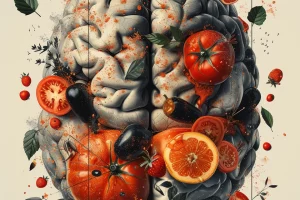We have always been taught to chug coffee and pull all-nighters while preparing for our exams or next-day meetings and presentations. But have you ever stopped to think about the toll this takes on our bodies, especially our brains?
We’ve all heard that our body needs a healthy amount of sleep to function, so why are we given this advice? It’s like trying to fill a leaky bucket with a teaspoon of water – no matter how much you pour in, you’ll still end up empty—wondering how to get that brain working. Don’t worry; we have got you covered. In this guide, we’ll show you the 21 best brain foods that have been scientifically proven to give your brain the boost it needs.
These foods, from nuts and seeds to leafy greens and fish, will nourish your brain and improve your cognitive abilities. We’ll also provide you with next-step guidance on incorporating these brain foods into your diet so you can start seeing results. (Ps. Your food isn’t the only one that plays a significant role in your brain’s functions. Check out our blog on — “How sleep affects your memory“)
Table of Contents
ToggleWhat is Brain Food?
What you eat significantly impacts your mind’s sharpness and enhances your memory power. It can make all the difference. Brain-friendly foods, packed with nutrients like antioxidants, healthy fats, and key vitamins and minerals, are crucial in supporting brain health and function.
However, the connection between diet and mental well-being goes beyond just feeding the brain. A healthy gut also plays a crucial role in maintaining cognitive abilities. The gut produces hormones and neurotransmitters that regulate memory, focus, and learning, directly influencing the brain.
On the other hand, a diet high in inflammatory foods can trigger the release of cytokines that lead to chronic inflammation, which has been linked to conditions like dementia, Alzheimer’s, and age-related cognitive decline. So, making mindful food choices can contribute to a healthier mind in the long run.
But can you improve memory by adding superfoods to your everyday diet? Dr. Hayley Nelson, a neuroscientist, tenured psychology professor, international speaker, and founder of The Academy of Cognitive and Behavioral Neuroscience, says,
“It is important to note that diet is just one factor among many that can influence memory, and no single food can magically improve memory on its own. A balanced and varied diet that includes a variety of nutrient-rich foods is the best approach to supporting brain health and overall well-being”.
So, consider the impact on your brain next time you reach for a snack. Fueling your body with the right brain foods can significantly support mental sharpness and keep your mind in excellent condition. Your food choices have the power to make a positive difference in keeping your mind at its best.
But how does it work, and what makes it so powerful?
Research has shown that the nature of our inner monologue can significantly impact our mental health and well-being. Negative self-talk can lead to anxiety and depression, which can lower our self-esteem.
Positive self-talk is a powerful tool that can boost our confidence, improve our mood, and help us achieve our goals. The key lies in recognizing and actively cultivating more positive and supportive self-talk. Techniques such as mindfulness, cognitive-behavioral therapy, and positive affirmations effectively cultivate a more optimistic and supportive self-talk. Let’s further explore how the dynamics of our inner monologue impact our mental health and daily lives.
Don't let a poor memory hold you back in your career or personal life. Sign up for Nelson Dellis' Memory program and unlock your full potential.
Join Now
21 Best Brain Foods to Include in Your Diet to Boost Memory Power & Concentration
1. Blueberries
“If I had to choose one brain superfood, it would be blueberries” – says Jesse Feder, a personal trainer and registered Dietitian.
Blueberries are considered one of the best brain foods due to their high levels of antioxidants, which can protect the brain from oxidative stress and inflammation. The anthocyanins found in blueberries, which give them their color, have slowed aging and neurodegeneration while improving cognitive function, including memory, attention, and executive function. Just eating 1-2 cups of blueberries per week can provide these benefits. So, adding some blueberries to your snacks could be a smart and tasty choice for your brain health!

2. Wild Salmon
Wild-caught salmon is a great choice for your health, especially your brain. It is rich in omega-3 fatty acids (DHA & EPA), essential fats found only in fish or fish products. These beneficial fats aid hormone production while contributing to improved cell structure integrity throughout the body – including the brain. Consuming 2-3 servings of wild salmon per week is recommended to reap these benefits. So, enjoying some wild-caught salmon regularly can be a smart and tasty way to support your overall well-being.

3. Nuts & Seeds
Nuts like almonds, walnuts, and pumpkin seeds make for fantastic snacks that are tasty and really good for you. They’re filled with healthy fats that give your brain the energy it needs and contribute to your overall health. These snacks are rich in good fats, protein, and important nutrients like vitamin E, magnesium, and zinc. Whether you munch on them as they are or sprinkle them on salads and stir-fries, nuts and seeds are like a power-packed nutritional boost for your body. So, adding a handful of these to your daily routine can be an easy and delicious way to support your well-being.
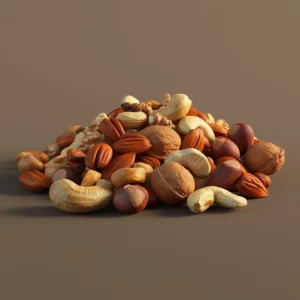
4. Beets
Beets are full of betalains, special compounds that work like bodyguards for your cells, providing antioxidant protection, including the ones in your brain. They also protect against harmful molecules called free radicals. To get these benefits, consuming 1-2 servings of beets per week is a good idea. You can roast, steam, or grate them and add them to your salads and smoothies.
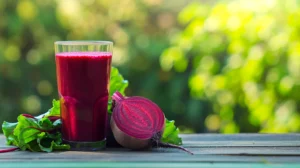
5. Avocado
Avocado is part of the “Brain Fats” group because it has something called monosaturated fat. This type of fat is known for improving cognition & intellectual performance through increased levels of oxygen delivery while also providing needed energy reserves during intense mental activity. It helps with thinking and mental performance. Consuming 1-2 avocados per week either as a snack or by adding them to meals such as sandwiches or salads is a smart way to incorporate them into your diet and improve your brain health.
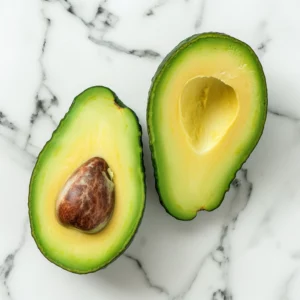
6. Coconut Oil
Coconut oil is like a super fuel for our bodies. It’s loaded with something called medium-chain triglycerides, which work as a powerful energy source for our metabolism. Unlike some other oils, like olive oil or butter, coconut oil can give our brains a quick boost of energy, making our thinking better. You can include 1-2 tablespoons of coconut oil in your daily routine to get these benefits. You can use it as cooking oil or mix it into smoothies and salads – it’s a simple and tasty way to support your body and brain
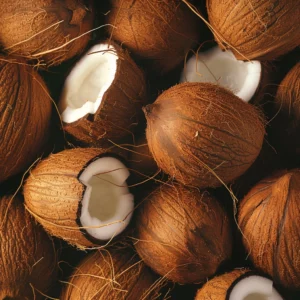
7. Turmeric
The star player in Turmeric is curcumin, which is believed to help with inflammation and enhance cognitive function due to its neuroprotective effects on neurons & their growth patterns throughout adult life stages. Toss turmeric into meals like curries, soups, or smoothies to bring this goodness into your diet.
8. Dark Chocolate
Have you ever found yourself stress-eating chocolates the night before your school boards or presentations at work? Well, there’s good news: cocoa, the main ingredient in chocolates, contains polyphenolic flavonoids, which have been linked with improved cognition.
Moreover, it reduces oxidative stress in both adults & children alike and also increases blood flow (and thus oxygenation) in our brains during periods where we require peak focus levels, such as exam prep time. So, a bit of dark chocolate might just be the sweet treat your brain needs!

9. Fermented Foods
Foods like yogurt, kefir, and kombucha are packed with probiotics, friendly bacteria that do wonders for your gut. These probiotics can help reduce inflammation in your belly and brain by improving gut health. So, adding some fermented goodies to your diet can be a tasty way to support your overall well-being.
10. Whole Grains
When it comes to grains, you should choose whole ones like oats, brown rice, and quinoa over refined ones that lack nutrients. These whole grains bring a mix of protein, complex carbs, and fiber to your plate. They’re good for your body and are also essential for good thinking & decision-making processes. Plus, they’re a good source of nutrients such as vitamin E, zinc, and B vitamins, which are important for brain function and memory. Aim for 1-2 servings of whole grains each day to keep your brain and body happily fueled.
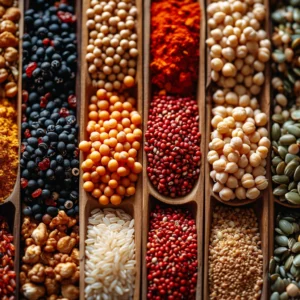
11. Green Tea
“Green Tea is one of my favorite brain foods of all time” – says Catherine Gervacio, a Registered Dietician.
Green tea is a good anti-inflammatory drink packed with nutrients and antioxidants without contributing too many calories. It contains L-theanine, an amino acid that relaxes and sharpens the mind, enhancing cognition. Its caffeine content keeps the brain alert, making it a refreshing choice for mental focus.
12. Eggs
Eggs are a powerhouse of nutrition, providing protein, choline, vitamin D, and omega-3 fatty acids. Choline is essential for brain health, linked to improved memory and cognitive function. Vitamin D plays a role in maintaining healthy brain cells and may help protect against cognitive decline. Additionally, the omega-3s in eggs help reduce inflammation in the brain. Eggs can be consumed in various ways, such as scrambled, boiled, or as an omelet. To maximize brain benefits, consuming 1-2 eggs per day is recommended as part of a balanced diet.
NOTE: While eggs are a healthy food choice, it is important to monitor their consumption as they are high in cholesterol.

13. Spinach
Spinach is a nutrient powerhouse, loaded with vitamins A, C, and K and antioxidants. Vitamin K has been linked to improved cognitive function. It also contains folate, which is important for healthy brain development and may help reduce the risk of cognitive decline in older adults. Whether enjoyed raw in salads, sautéed as a side dish, or blended into smoothies, aiming for 1-2 servings of spinach daily can maximize its brain-boosting benefits.
14. Oranges
Oranges are bursting with vitamin C, antioxidants, and flavonoids. Vitamin C is important for healthy brain function and may help reduce the risk of cognitive decline. Additionally, antioxidants and flavonoids in oranges act as protective shields for the brain, guarding against oxidative stress and inflammation. Whether eaten as a snack or added to salads and smoothies, including 1-2 servings of oranges in your daily diet is recommended for optimal brain health.
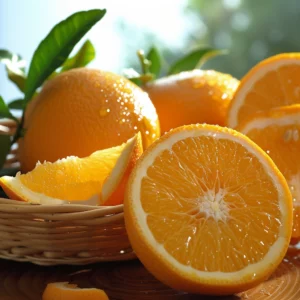
15. Coffee
Caffeine in coffee is like a friend for your focus and attention. Not only that, but coffee is also rich in antioxidants, acting as bodyguards for your brain against stress and inflammation. Enjoying coffee in moderation, around 3-4 cups a day, has also been linked to a reduced risk of cognitive decline and dementia. However, be mindful not to overdo it, as too much caffeine can have negative effects on brain function.

16. Sweet Potatoes
Sweet potatoes are nutritional superheroes with fiber, vitamins A and C, and antioxidants. Vitamin A is important for healthy brain function, and antioxidants can help protect from oxidative stress and inflammation in the brain. With a low glycemic index, sweet potatoes help steady blood sugar levels, promoting better brain function. Whether roasted, baked, or mashed, having 1-2 servings of sweet potatoes each week is a tasty way to support your brain health.
17. Yogurt
Yogurt, a dairy delight, is packed with protein, calcium, and probiotics. Probiotics are those friendly bacteria that act as superheroes for your gut by improving gut health, which is linked to improved brain function. Yogurt has been shown to improve cognitive function and memory, possibly due to its high protein content. Enjoy it as a snack, blend it into smoothies, or add it to breakfast bowls. Aim for 1-2 servings of yogurt daily to keep your gut and brain in good shape.

18. Cinnamon
Cinnamon isn’t just a spice; it’s an antioxidant powerhouse that shields your brain from stress and inflammation. It goes beyond adding flavor – studies suggest it can enhance cognitive function, memory, and attention due to its ability to improve insulin sensitivity, which can help regulate blood sugar levels and improve brain function. Sprinkle it in teas, oatmeal, or on top of toast to enjoy its brain-boosting benefits in various tasty ways.
19. Mackerel
Mackerel, a fatty fish delight, is rich in omega-3 fatty acids, crucial for brain health. These omega-3s are linked to better cognitive function, memory, and mood. Loaded with vitamin B12, it’s tasty, supports healthy brain function, and may help reduce the risk of cognitive decline. Whether grilled, smoked, or in a sushi roll, enjoying 2-3 servings of fatty fish per week, including mackerel, is a smart move for your brain.
20. Pomegrantes
Pomegranates are high in antioxidants, particularly polyphenols and flavonoids. These antioxidants can help protect the brain from oxidative stress and inflammation linked to cognitive decline and neurodegenerative diseases. They enhance blood flow to the brain, further improving cognitive function. Whether enjoyed as a snack, in salads or blended into smoothies, incorporating pomegranates into your diet is a flavorful way to support your brain.
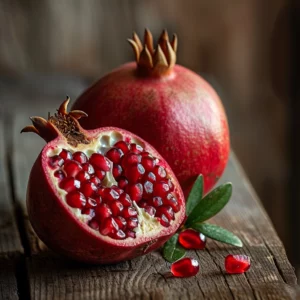
21. Lion’s Mane Mushrooms
Lion’s Mane Mushroom has been used in traditional Chinese medicine for centuries. It contains compounds called erinacines and hericenones, which have been shown to stimulate the growth of new brain cells and improve cognitive function. Whether in supplement form or fresh/dried, you can add it to soups, stir-fries, or smoothies. However, it’s wise to check with a healthcare provider before adding any supplements to your diet. Lion’s Mane Mushroom could be a fascinating addition to your culinary or supplemental repertoire for a brain-boosting journey.
What are the Worst Brain Foods?
Trans Fat
Catherine Gervacio, Registered Dietician and nutrition writer for Living. Fit agrees that any food that has trans fat is the worst for brain health. “But if I had to choose only one of the worst brain foods, french fries are on the top list. It is an empty-calorie food that does not provide substantial nutrients for proper body function, including the brain. French fries are high in trans fat and can affect the brain’s health. Specifically with its ability to alter the neuron’s communication that negatively affects mental function”, she says.
Soda and other Carbonated Drinks
“As a dietitian, I believe soda to be the worst food for the brain. Soda is highly processed and contains dyes, high fructose corn syrup, and is loaded with sugar. Regarding your brains, high sugar consumption has been linked to increased chances of developing dementia, Alzheimer’s, and decreased memory/learning abilities.
High sugar consumption can lead to several chronic inflammatory diseases that damage our brain’s blood vessels and cells. Short-term, it can also cause a spike in energy levels, making it hard to focus.
Soon after, this energy crashes, and you become pretty tired and still unable to focus. The brain does need glucose to function, but when you flood it with too much energy, it has a hard time dealing with all of it,” says Jesse Feder, a personal trainer and registered Dietitian.

Sugars
Max Lugavere, the American Health and Wellness writer, stresses in his book “Genius Foods” the harmful effect of any form of sugar on the brain. Glucose is also a type of sugar.
Look for it in your diet because it sticks to and eventually damages the surface of proteins and cells necessary for the proper functioning of major organs and tissues, including your brain.

Fancy Tripling your Memory?
Whether you’re tired of constantly losing your train of thought during important presentations or lectures or you struggle to remember important deadlines, dates, and names, it’s time to take control of your memory. Say goodbye to forgetfulness with the Everest Memory program by Nelson Dellis, a 5-time USA Memory Champion and Guinness World Record holder.
This comprehensive program is designed to help you unlock your full memory potential to impress your classmates and colleagues with your newfound ability to remember everything- from deadlines to names and critical information.
Nelson’s proven techniques will transform your memory, allowing you to recall information effortlessly. Gain a substantial advantage in your studies and work by signing up for the Everest Memory program today.
Don’t let forgetfulness hold you back any longer. Sign up for the Everest Memory course today and start climbing towards a more confident, productive, and memorable tomorrow!

